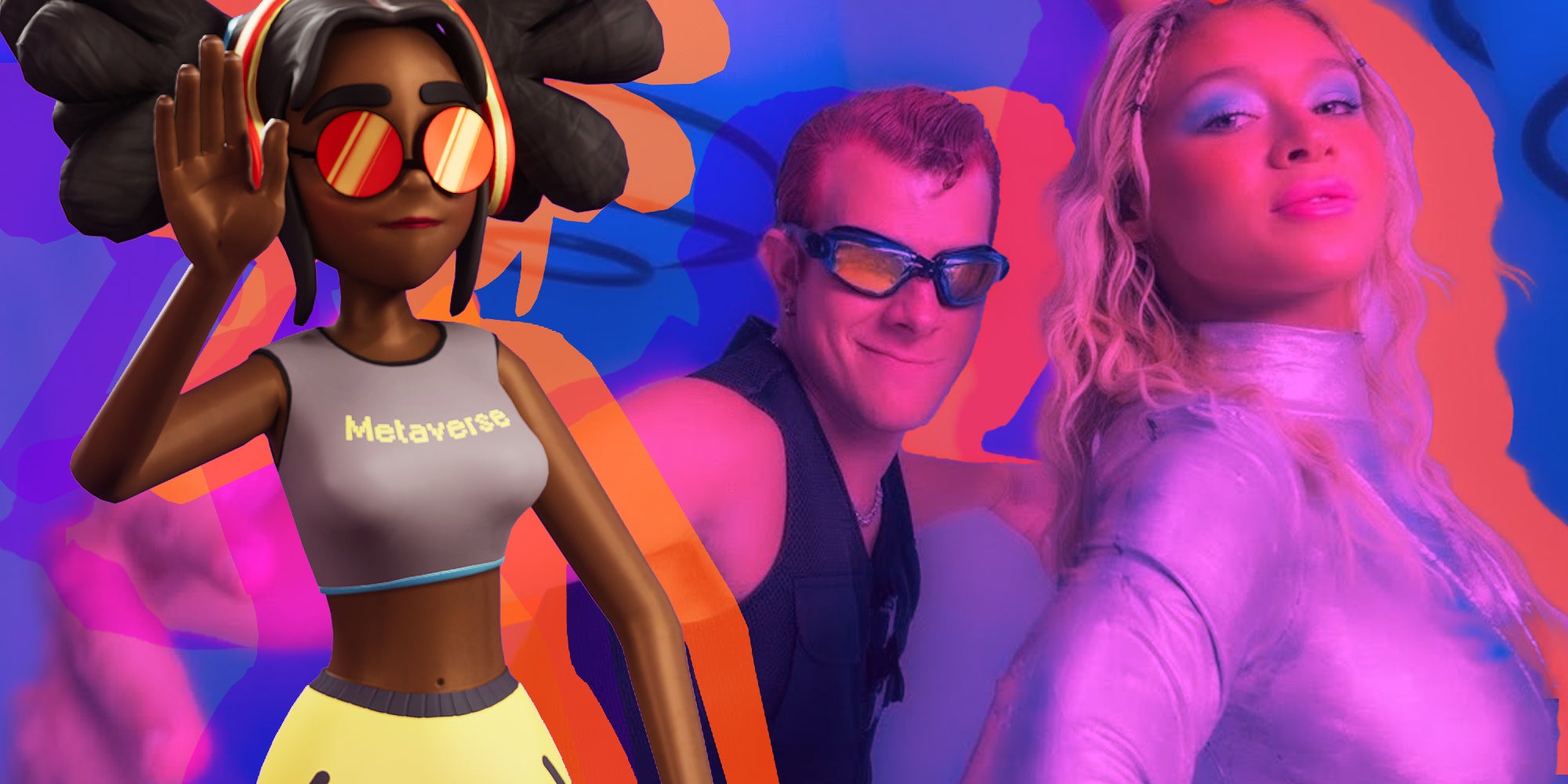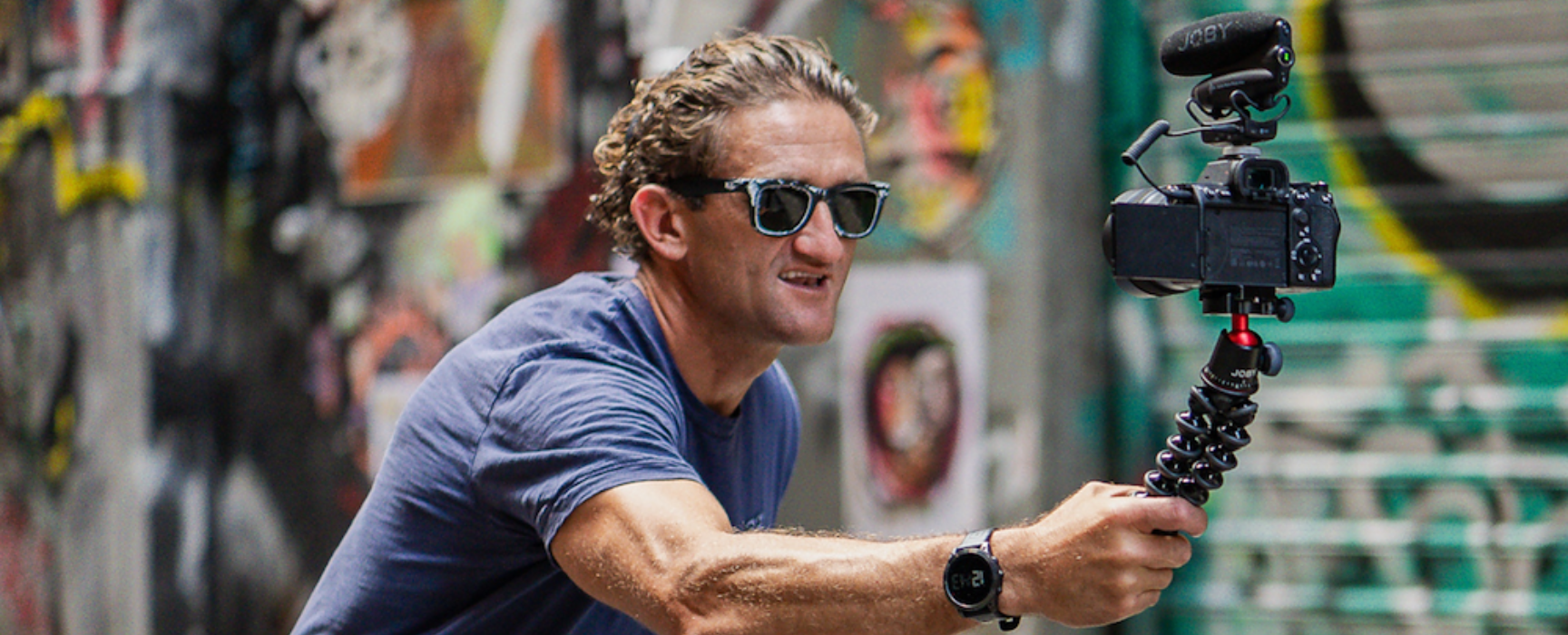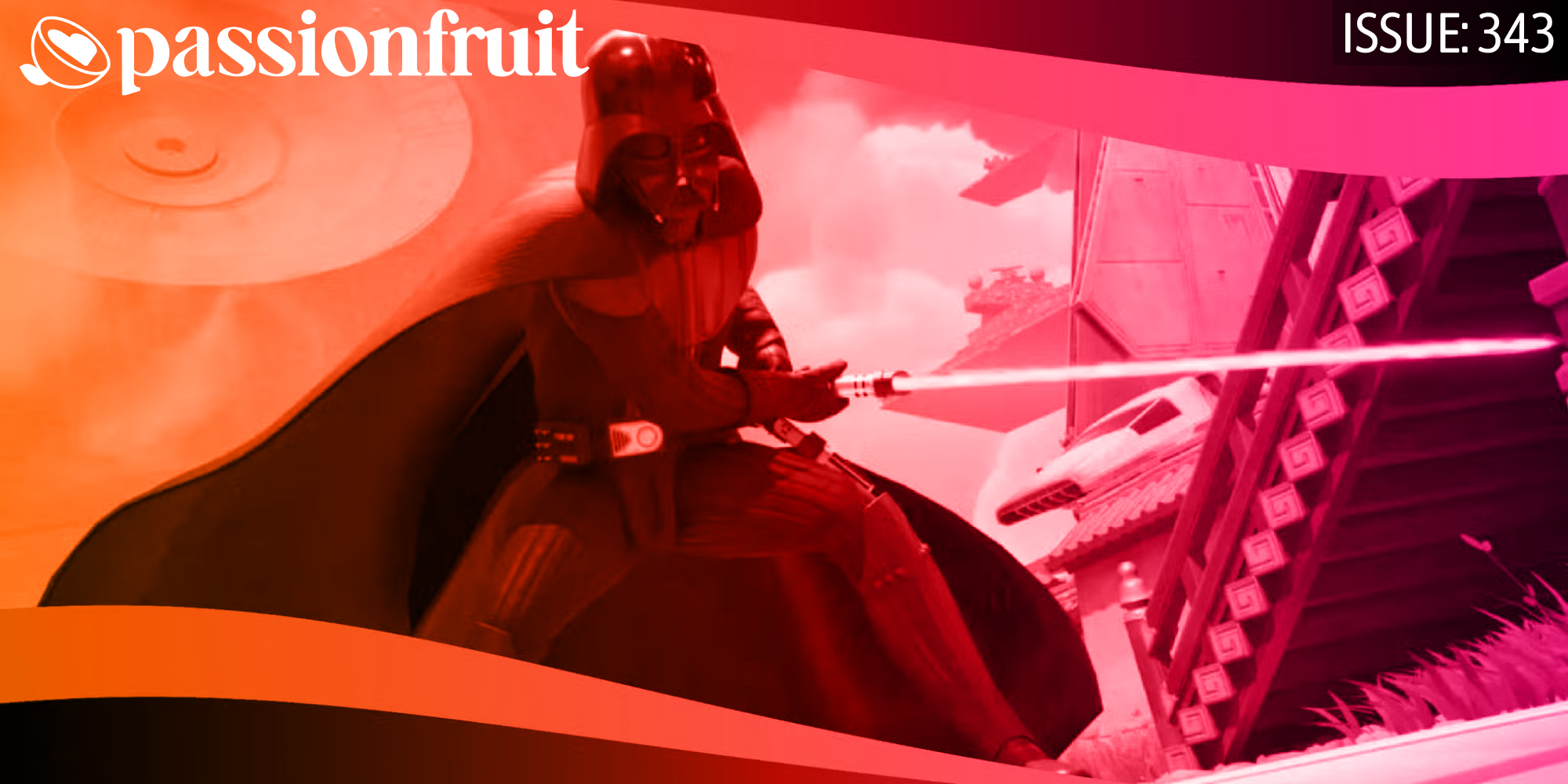CREATOR NEWSLETTER
Issue #196 | December 21, 2023
It’s the longest night of the year here in the northern hemisphere. Happy solstice to all of y’all who, like me, experience seasonal affective disorder and know the exact moment (10:27pm EST on Dec. 21, 2023) when our half of the earth starts tilting back towards the sun. We made it.
For the rest of you, tonight’s just another long, dark night. And I’m about to make it a little darker.
A few weeks ago, Facebook’s PR Team invited Passionfruit to an exceptionally fancy lunch with a few other publications that cover this creator space. This is not entirely rare, PR folks take journalists to lunch all the time. Big publications like the New York Times and Washington Post won’t let their journalists accept such perks from the companies they cover, but at smaller, independent publications, we can get away with going as long as we tell you we accepted a free lunch from the people we’re about to heap praise (or in my case, criticism) on.
This is not the first time Facebook (or Meta, as I’m supposed to be calling them now) has bought me lunch. It is the first time they didn’t buy me alcohol – times are tough everywhere, I guess. It might be the last time they invite me anywhere after they read this, but I’m filing my grievances with the hope that they take it to heart and do better.
At the crux of the lunch (besides the ravioli, which was delightful): Creator Monetization.
We covered this last week: Facebook is sunsetting its advertising revenue split deal with creators. Just like all other platforms, this system wasn’t very transparent; you kind of needed to just trust that Facebook was counting the number of ads and then calculating your revenue share fairly. Facebook has never ever had a problem with ads before so this is fine (sarcasm).
Instead, in a magnanimous showing of transparency (also sarcasm), they’ll start offering payment based on the “performance” of every post, performance being defined as “monetizable views.” Much clearer! What makes a view a monetizable one? Silly creator, like the algorithmic wizardry that underpins your entire existence, monetizable views are simply views that are eligible to be monetized. Any questions?
Well, I’ve always had lots. The first time I heard Facebook give a pitch like this, I was working in advertising. The agency I worked for, cringe-named Mr Youth, was one of the first agencies to buy ads (or “flyers” as they were called in 2004) on the students-only platform. By the time I showed up as a 20 year old agency kid in 2007, brands were being invited to start building their fan pages, which college students like myself were supposed to go “Like.” We didn’t, we thought having PepsiCo and Frito-Lay asking us for attention sucked the fun out of what was supposed to be a closed, private platform for photos your parents couldn’t see.
So Facebook told the brands they could buy Likes to reach their audience. Fine. Brands scrambled to build their followers, each Like costing just a few cents, equaling billions in profit for the social network. Were the Likes coming from real accounts? Who knows! But that money had to come from somewhere, and that somewhere was the newly minted digital advertising budgets that brands were spending. Buying advertising on the internet in 2008 wasn’t particularly easy; even Google was in the earliest stages of building its massive ad infrastructure. Facebook gave brands an easy way to spend money online and see their likes go up, and they spent a fortune on it.
Except! When the brands hired in-house social media teams to create and post stuff on their business pages organically, they noticed that their millions of fans were turning into just hundreds or dozens of likes per post. Why, if they had a million followers, weren’t they getting a million views every time they posted something?
The answer to that question seems obvious now to all of us, but at the time, the advertising world was cluelessly shocked. Facebook convinced brands to buy their followers, then charged brands more money to reach those same followers they just bought. Almost exactly 10 years ago, Digiday wrote, “Facebook Is Not Making Friends On Madison Avenue.” In that piece, I’m quoted as saying, “Facebook may have pulled off the most lucrative grift of all time.”
THE COMMENTS SECTION
“Is there someone who knows Facebook and Instagram really well who can talk me through how the heck all of their creator monetization systems work because I am so freaking confused.”
– Hank Green (@hankgreen) on Facebook’s creator monetization systems.
This is what Facebook does, has always done, and will always do. They are not a content-making company, they are not a creator-making company, they are a money-making company. That’s what they do best, and they’ll make the money however they can. To wit, I left Mr Youth in 2008 to go work for an independent digital publisher (Gawker Media, hold your heckles). From the publishing side of the equation, Facebook was siphoning up all our advertising dollars with shocking effectiveness.
Despite the bait and switch, brands still found it easier to spend with Facebook month after month than it was to spend money with dozens of different websites. In another act of mercy (more sarcasm), Facebook started offering publishers a cut of the advertising revenue they were making on the articles that our writers and journalists were producing. The catch was we also needed to get our publications on the platform, build up a following, and agree to let Facebook sell, serve, and count the ads against their “Instant Article” posts. Sound familiar?
At first, this seemed like an upside. Publications like NowThis and PolicyMic sprung up to capitalize on this new monetization opportunity. These sites raised money, got offices, and did honest-to-god good journalism at times. By 2015 or so, YouTube, Instagram, and Vine were showing a growing demand for digital video, and Facebook wanted in. They would encourage these same publications that were monetizing so well with Instant Articles to hard pivot to short-form videos, meaning more fundraising, more new hires, and more content.
The ad revenue wasn’t immediately there to make the pivot to video make economic sense for publishers, so Facebook went as far as to tinker with the idea of acting like a studio, commissioning projects from an enormous “Facebook Watch” budget that rained money on just about every digital publication you’ve ever heard of. The worst way out of a hole is to keep digging, but that’s exactly what we all did.
You know how the story goes. The money dried up for publishers, Facebook abandoned Instant Articles and Facebook Watch within years of both programs launching. Publishers were left with diminished traffic, no money, and the need to do layoffs at best, or fold at worst.
I should remind you that once upon a time, digital (and traditional) publishers were places where creative people could work at a company for a steady paycheck, a 401k, and reliable hours. They weren’t perfect, but they offered baseline protections to their employees that you couldn’t get as a freelance creative. Facebook made it impossible for those publishers to compete, first by sucking up their ad dollars, then offering it back at pennies on the dollar, before deciding to keep it all to themselves after all.
So now, creators, when Facebook says to trust them because their performance payout model is designed to help you sustainably make money on their platform, know that I’ve been taking and giving money (and free drinks/lunches!) from that company for over a decade. They only know strong-arm mob tactics that increase their stock price, the sustainability of your content or your livelihood is not their concern. If you need more proof, know that the head of the dried-up Facebook Watch Originals program was CollegeHumor founder Ricky Van Veen. He’s Facebook’s Global Head of Creative Strategy and is very likely involved in this latest pivot to creators.
When AI comes along and makes it easy to replace creators with avatars, do you think this company is morally capable of understanding the absolutely devastating effect that can have on the creator ecosystem? I asked the folks at lunch what they thought of AI, and the response was mostly “too soon to tell, but looks exciting.” Yikes. In the same way they decimated the advertising and publishing industries before it, now they are coming for you. They told Madison Avenue and the largest media organizations in the world to get bent … you think they’ll balk at people with Patreons this time?
You can’t really ignore that Facebook is still the largest social network (by users) in the world, and they are going to make it seem mighty tempting for you to shift your creative operation over there. It’s really an offer you can’t refuse. Shoot, you should probably do it, and the truth is we’ll probably publish a slew of guides on how to make the most out of it while it lasts.
But my immediate advice: Don’t get too comfortable, don’t spend token dollars – or token anything, for that matter – like it’ll keep growing forever, and if you ever get a chance to eat out on Facebook Meta’s dime, you take that meal every damn time. They owe us so much more, but for folks making money on the internet, at least there is occasionally such a thing as a free lunch.
Enjoy the long dark night, Merry Christmas!
– James Del, Publisher
NOTED BY LON HARRIS
2023 Proved We’re Not Ready to Replace Human Creators
Apps captured everyone’s interest but largely remain a curiosity.
By Lon Harris, Passionfruit Contributor

SPONSORED

A vlogging kit that’s truly pro-level
Created to meet the needs of storytellers, filmmakers, and content creators, the PRO Vlogger kit from Joby features the ultimate on-camera vlogging microphone, Wavo PRO, and the strongest GorillaPod to date, the 5k PRO. Known and loved by the biggest creators around the world, this is the kit you need to produce pro-level, viral-worthy content.
IN THE BIZ
- Be careful while scrolling X this holiday season. Crypto scammers are exploiting a Twitter feature that allows URL manipulation to impersonate high-profile accounts, promoting fake crypto giveaways and fraudulent activities.
- Twitch’s Art category hit record viewership thanks to the ‘artistic nudity’ rule change prior to the platform rolling the change back.
- Substack faces internal debate as writers clash over calls to ban Nazi-themed content, highlighting tensions between free speech principles and content moderation. Substack co-founder Hamish McKenzie stated that the company won’t be removing the content, saying, “we don’t think that censorship (including through demonetizing publications) makes the problem go away — in fact, it makes it worse.”
- The Federal Trade Commission has proposed revisions to the Children’s Online Privacy Protection Rule that aim to impose new limits on the use of children’s personal data by companies and shift the responsibility for ensuring the safety of digital services from parents to providers.
- The State of New York is proposing a bill mandating social media platforms to offer open access to their APIs, enabling third-party apps to create tools for users to control their social media experience while addressing concerns about abuse and privacy.
- Looking for a new way to ring in the new year? Tyler “Ninja” Blevins will be hosting “Ninja’s NYE,” streamed on his YouTube, Twitch, and TikTok channels, with special guests including fellow web stars TimTheTatman, SypherPK, DrLupo, BasicallyIDoWrk, and LEGIQN.
PERSONALITIES
A Creator Christmas Carol: Instagram Star Chiara Ferragni Fined For Misleading Fans About Charity Campaign
Influencer Chiara Ferragni is under fire for allegedly engaging in false advertising.
By Charlotte Colombo, Passionfruit Contributor
PLATFORMS
Is Twitch For Kids? Streamers Are Divided
Streamers told Passionfruit that Twitch’s current moderation standards for children are less than satisfactory.
By Steven Asarch, Passionfruit Contributor
A HOLIDAY EDITION OF WHAT WE’RE WATCHING
- Mary Cherry watched 1983’s “A Christmas Story.”
- Late to the Party reacted to 2003’s “Bad Santa.”
- Looney’s Universe Reactions watched 2003’s “Elf.”
- Jen Murray reacted to 1992’s “Home Alone 2: Lost in New York.”
- Wee Lass Reacts watched 2011’s “Arthur Christmas.”
- Cinema Rules reacted to 2019’s “Klaus.”
TIKTOK MADE ME DO IT
If you’re going to be unwrapping gifts this holiday season, remember that it isn’t just about the surprises inside; it’s a rollercoaster of emotions and unexpected laughs.


Copyright © 2022 Passionfruit, All rights reserved.
You are receiving this email because you signed up to get the latest tips, tricks,
and trends in the creator economy from Passionfruit.
Have an idea for our next big story or want to get featured? Email us at tips@passionfru.it
Don’t want to hear from us anymore?
Click here to unsubscribe
To view in your browser click here





